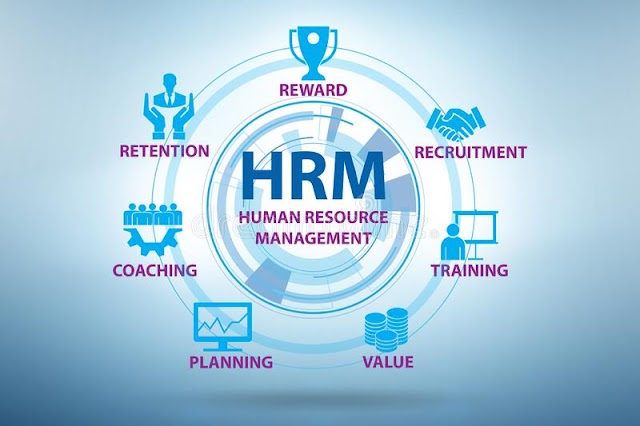A leader is a visionary who organizes, guides, and manages others, motivating their team towards a desired outcome. Understanding leadership responsibilities is crucial for success in today's environment.
3.1.What is Leadership.
A leader directs and motivates a group or individual towards a goal, inspiring them to take necessary initiatives. Effective leadership skills are developed through learning and practice.
Leadership skills are utilized by leaders at all levels, including CEOs, supervisors, and project managers, who may use specific styles or combinations depending on the group and situation.
According to Paul Hersey (1969), “Leadership is the process of influencing the activities of an individual or a group in efforts toward goal achievement in a given situation.”
There are different types of leadership.
- Transactional: Establishes predetermined rewards for achieving objectives
- Transformational: Emphasizes establishing and accomplishing organizational goals
- Autocratic: Prioritizes setting objectives based on effectiveness
- Democratic: Works to hear team members’ opinions and incorporate them
3.2.Roles and Responsibilities of a Leader
A leader's job description should outline their duties, which may vary depending on the company, but they should include the following obligations:
- Making decisions
- Setting an example
- Coordinating people and activities
- Communicating goals and work plans
- Inspiring the team
- Working in unison
- Evaluating the team's performance
- Supervising daily activities
- Conflict management
- The welfare of your employees
3.3.Qualities of a good leader
Below are five essential qualities of a leader.
- Emotional intelligence
- Visionary
- Effective Communication
- Innovative
- Integrity
3.4.How to Become a Great Leader?
A strong leader is characterized by qualities like assertiveness, adaptability, intelligence, and conscientiousness. Transformational leaders are positive, empowering, and inspiring, valuing followers and guiding them to perform better. To become more effective leaders,
According to John Maxwell,(2007) "A great leader's courage to fulfill his vision comes from passion, not position".
embrace these qualities.
- Encourage Creativity
- Serve as a Role Model
- Be Passionate
- Listen and Communicate Effectively
- Have a Positive Attitude
- Encourage People to Make Contributions
- Motivate Your Followers
- Offer Rewards and Recognition
- Keep Trying New Things
3.5.New Trends Shaping Future Leaders
- AI and Technology
- Pace of Change
- Purpose and Meaning
- New Talent Landscape
- Morality, Ethics, and Transparency
- Globalization
In conclusion
References
Hersey, P., Blanchard, K. H., & Johnson, D. E. (2001). Management of organizational behavior: leading human resources. 8th ed. Upper Saddle River, N.J., Prentice Hall.[Accessed 02 April 2024]
Hersey, P. (1969). Management of Organizational
Behavior: Utilizing Human Resources. Prentice-Hall.
John C. Maxwell (2007). “The 21 Indispensable Qualities of a Leader: Becoming the Person Others Will Want to Follow”, p.89, Thomas Nelson [Accessed 02 April 2024]
Additional references
https://uk.indeed.com/career-advice/career-development/leadership-roles
Cekmecelioglu, HG, Ozbag, GK. Leadership and creativity: the impact of transformational leadership on individual creativity. Procedia - Social and Behavioral Sciences. 2016;235(24):243-249. doi:10.1016/j.sbspro.2016.11.020
Hayati D, Charkhabi M, Naami A. The relationship between transformational leadership and work engagement in governmental hospitals nurses: a survey study. Springerplus. 2014;3:25. doi:10.1186/2193-1801-3-25
Steinmann B, Klug HJP, Maier GW. The path is the goal: how transformational leaders enhance followers' job attitudes and proactive behavior. Front Psychol. 2018;9:2338. doi:10.3389/fpsyg.2018.02338
Amanchukwu RN, Stanley GJ, Ololube NP. A review of leadership theories, principles and styles and their relevance to educational management. Management. 2015;5(1):6-14. doi:10.5923/j.mm.20150501.02
Halaychik CS. Leadership theories. In: Lessons in Library Leadership. Elsevier; 2016:1-56. doi:10.1016/B978-0-08-100565-1.00001-7
Spector BA. Carlyle, Freud, and the Great Man Theory are more fully considered. Leadership. 2015;12(2):250-260. doi:10.1177/1742715015571392.
Yukl G. Effective leadership behavior: What we know and what questions need more attention. Acad Manag Perspect. 2012;26(4):66-85. doi:10.5465/amp.2012.0088.






11 Comments
Good Job!
ReplyDeleteleadership is crucial in modern world, its a constantly evolving skill that requires adoptability & a willingness to embrace change.
This impressive article shows how Leadership involves directing, motivating, and influencing individuals or groups toward goal achievement. Key qualities include emotional intelligence, vision, communication, innovation, and integrity. It also shows how future leaders must adapt to emerging trends, adapt to changing environments, and maintain a positive attitude.
ReplyDeleteThe only downside here is that there are more references than the actual content. Nevertheless, a great article with plenty of information to gather. Thank you.
A leaders should be the one who is supporting the team to achieve organization goals. .. good work..
ReplyDeleteThis blog provides a comprehensive overview of leadership, outlining its definition, roles, responsibilities, qualities, and future trends. It offers valuable insights for aspiring leaders and serves as a guide for developing effective leadership skills in today's dynamic environment.
ReplyDeleteThe inclusion of practical advice on becoming a great leader, along with insights into emerging trends shaping future leadership, makes this note a valuable resource for individuals looking to enhance their leadership capabilities and navigate the complexities of modern organizational dynamics.
Leaders are encourage the fallowers to perform well and be productive, while they are influence overall company productivity. Hence, it's important to identify the role of a leader and their responsibilities to become a success leader in an organization.
ReplyDeleteVery informative and attractive.
ReplyDelete
ReplyDeleteInsightful overview of leadership roles and qualities. Clear explanations and modern trends highlighted effectively. Helpful for understanding leadership dynamics in contemporary workplaces.
The multifaceted role of a leader is central to the direction and success of a team or organization. Leadership is about guiding and inspiring others towards a common goal, a responsibility that necessitates a diverse set of skills and qualities that can be honed over time through learning and experience.
ReplyDeleteBuilding and maintaining relationships is crucial for effective leadership, both inside the company and with outside partners and stakeholders.
ReplyDeleteLeadership is very important for the organization to achieve organizational goals. The person who drives the organization is holding a major role to its success. This blog has given a good idea about leadership, qualities of a good leader, new trends.
ReplyDeleteLeader is the person who drives organisational goals..clearly explain the quality of leadership
ReplyDelete